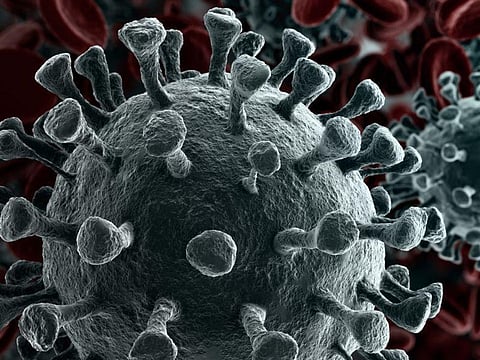THURSDAY, July 8, 2021 (HealthDay News) -- The worldwide coronavirus death toll topped 4 million on Thursday, with the highly contagious Delta variant spotted in more than 100 countries and the World Health Organization warning against nations relaxing restrictions too quickly.
"The numbers may not tell the complete story, and yet they're still really staggering numbers globally," Jennifer Nuzzo, an epidemiologist at Johns Hopkins University's Bloomberg School of Public Health in Baltimore, told The New York Times.
On Wednesday, Dr. Tedros Adhanom Ghebreyesus, director-general of the World Health Organization, warned countries against opening up too soon.
"Compounded by fast-moving variants and shocking inequity in vaccination, far too many countries in every region of the world are seeing sharp spikes in cases and hospitalizations," he said during a news conference, the Times reported.
Even the Delta variant, which first emerged in India and is now ripping through unvaccinated populations around the globe, "is itself mutating and will continue to do so," said Maria Van Kerkhove, technical lead at the WHO's Health Emergencies Program, the Washington Post reported.
In the United States, the rapid spread of the Delta variant has prompted the federal government to send a COVID-19 surge team to provide public health support in southwest Missouri, where the spread of the virus is filling up hospital beds once again, CNN reported.
The surge of COVID-19 cases is so high in the city of Springfield, Mo., that the CoxHealth hospital system began transferring patients infected with the virus to other facilities to provide better staffing, CNN reported.
Over the past week, Missouri had second highest caseload in the country, with 15.5 new cases per 100,000 people daily, according to Johns Hopkins University data. Arkansas claimed the highest rate, at 15.7 new cases per 100,000 people each day, CNN said.
"We're already starting to see places with low vaccination rates starting to have relatively big spikes from the Delta variant," Dr. Ashish Jha, dean of the Brown University School of Public Health in Rhode Island, told CNN.
"We've seen this in Arkansas, Missouri, Wyoming. ... Those are the places where we're going to see more hospitalizations and deaths as well, unfortunately," he said. "And any time you have large outbreaks, it does become a breeding ground for potentially more variants."
Delta variant now behind over 50% of U.S. COVID cases
The highly contagious Delta variant now accounts for more than half of all new coronavirus infections in the United States, new government data shows.
The dangerous variant that crippled India recently currently makes up 51.7% of new infections in this country, according to the U.S. Centers for Disease Control and Prevention. At the same time, the Alpha variant, which first surfaced in Britain and dominated infections in America for months, now only accounts for 28.7% of cases.
"If ever there was a reason to get vaccinated, this is it," Dr. Anthony Fauci told CNN's Anderson Cooper on Tuesday.
Americans living in areas where vaccination rates are low should be worried, health officials say.
"We're already starting to see places with low vaccination rates starting to have relatively big spikes from the Delta variant. We've seen this in Arkansas, Missouri, Wyoming ... those are the places where we're going to see more hospitalizations and deaths as well, unfortunately," Dr. Ashish Jha, dean of the Brown University School of Public Health in Rhode Island, told CNN.
Another expert agreed.
"The more unvaccinated people there are, the more opportunities for the virus to multiply," Dr. William Schaffner, a professor in the division of infectious diseases at Vanderbilt University Medical Center in Nashville, told CNN. "When it does, it mutates, and it could throw off a variant mutation that is even more serious down the road."
Parts of the South, Southwest and Midwest are starting to see spikes in cases, and many of those states -- such as Alabama, Arkansas, Louisiana and Mississippi -- are among those with the lowest rates of vaccination, according to the CDC.
States with below-average vaccination rates have almost triple the rate of new COVID-19 cases compared to states with above-average vaccination rates, according to recent data from Johns Hopkins University.
Some health experts said they would wear masks in certain places, despite being fully vaccinated.
"If you're in a low-infection, high-vaccination area, you don't need to be wearing a mask indoors if you're fully vaccinated," Jha said. But "if I were in southwest Missouri right now, I'm fully vaccinated, but I would be wearing a mask indoors."
More information
The U.S. Centers for Disease Control and Prevention has more on COVID-19 vaccinations.
SOURCES: The New York Times; CNN


